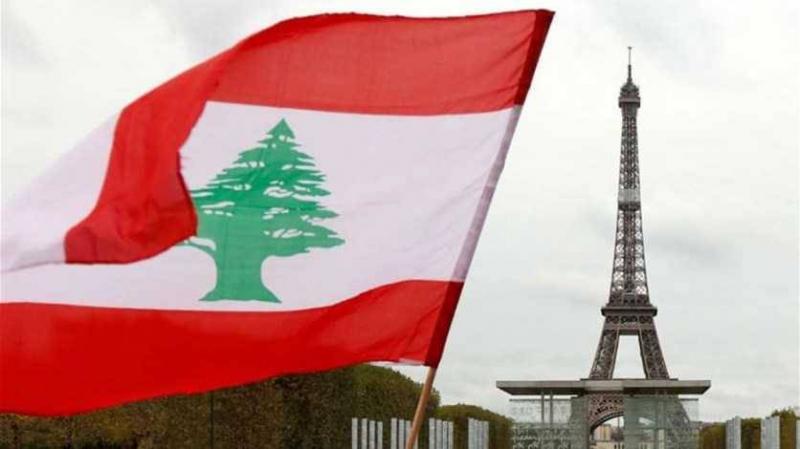The first round of the French legislative elections signaled a resurgence of both right-wing and far-left movements in the French National Assembly, attempting to constrain President Emmanuel Macron's new term by seizing the parliamentary majority from the centrist "presidential coalition" that supports him. This coalition has made several "rescue" initiatives for Lebanon since he took office. Lebanon is heavily involved in this democratic process, with many Lebanese-French citizens engaged in selecting 566 candidates for the French National Assembly, including representatives from the 11 districts designated for non-residents.
The tenth district, which includes Lebanon alongside 48 other countries from Asia and Africa, comprises nearly 100,000 voters, around 18,500 of whom are from Lebanon. The district has garnered significant attention, motivating many Lebanese to participate in democratic processes through nominations and voting. The results from the first round, held last week, saw candidate Amélie Lecographique and her Lebanese-French deputy Joseph Makrzel from the "presidential coalition" lead with 33% of the votes, while Chantal Moussa, the candidate from the "New Ecological and Social People's Union" (a coalition of left-wing and far-left parties) led by Jean-Luc Mélenchon, received about 22.5%. The competition is now narrowed down to the second round scheduled for June 19 between Lecographique and Moussa.
In light of the challenges and upcoming events in the region, Joseph Makrzel, who has been working alongside Lecographique since their election in 2017, reiterated the importance of their roles. He emphasized that his candidacy aims to serve the French citizens abroad and Lebanon as a whole, by being integral to French decision-making and enhancing communication with the executive authority, benefiting both the Lebanese and French peoples, as well as all French citizens in the tenth district.
Makrzel, who continues to work from Lebanon while addressing the concerns and issues of both Lebanese and French citizens, has prioritized strengthening communication between the two countries through parliamentary diplomacy with Lecographique and engaging with the French residing in remote areas and abroad. He stressed that improving relationships with the ruling presidential team and the executive power would be beneficial for the demands of French citizens abroad and all Lebanese.
Makrzel noted that leading in the first round does not guarantee their victory, emphasizing that the central battle for them lies in either granting President Macron confidence and means to govern or limiting his capability to make decisions during his new presidential term. He reinforced that Lebanon's support for the French president-backed candidates confirmed his policy aimed at rescuing Lebanon and provided additional impetus for standing by them in various future events.
Regarding the demands of French citizens in the tenth district, known for its rich cultural character, he underlined the importance of deputies in enhancing communication with non-resident French nationals—a hallmark of their work since their election in 2017—while addressing security, health, and social issues. The tax file also remains significant for expatriates, especially with the left's proposal to impose taxes on French citizens and their income and properties worldwide.
Makrzel mentioned efforts alongside Lecographique in tackling banking challenges that led to the closure of many bank accounts in France, working to reactivate them and establish mechanisms ensuring non-residents can manage administrative procedures online. They also aim to assist expatriate French citizens in overcoming the difficulties they face in completing administrative transactions remotely, especially due to the absence of a postal address, through the association SOS-expat, which creates postal addresses for expatriates.
Support for medical centers and provision of food aid in remote areas, particularly in Africa, is also a critical part of their work agenda. They plan to establish two centers in Lebanon, one in Beirut and another in Tripoli, to ensure proper medical care for French citizens. Additionally, they focus on aiding Lebanese-French citizens as their income levels decline, enabling them to meet their financial obligations, while also fostering educational sector support and educational staff, which became particularly evident after the Port of Beirut explosion on August 4, 2020.
To address the challenges facing companies and factories operating in Lebanon, they are collaborating with the Association of French Business Leaders Abroad to attract French investments and bolster Lebanese businesses and workers. Makrzel stressed the significance of Lebanon to President Emmanuel Macron, who prioritizes "innovative" rescue solutions for the country. He urged voters to engage in decision-making, support the centrist "presidential coalition" against extremism and the far-left candidate, and participate actively in voting for candidate Amélie Lecographique, forming a comprehensive team to address the demands of expatriate French citizens and Lebanese, ultimately serving both countries mutually.




